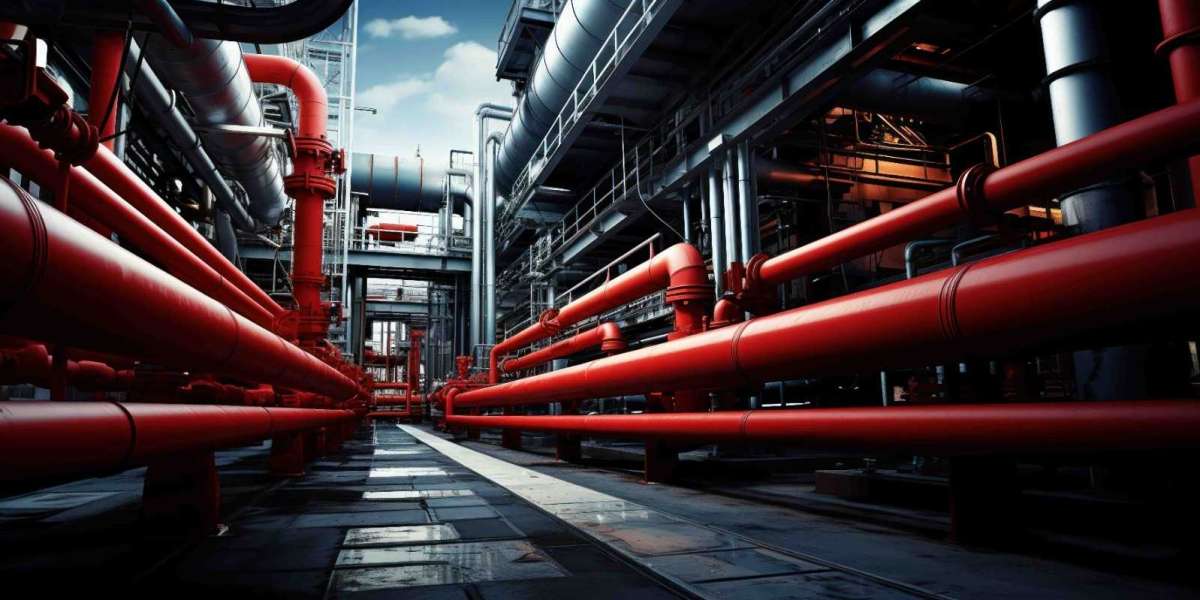In an era of heightened environmental consciousness, industries face the challenge of balancing operational efficiency with sustainability. As a critical component of industrial processes, valves are no longer just about controlling flow—they are transforming into smart solutions that enable sustainable systems. Advanced valves, equipped with cutting-edge technologies, now play a pivotal role in reducing environmental impact, optimizing resource use, and improving overall system efficiency.
This article explores how these innovative valves contribute to sustainability, their applications across industries, and the benefits they offer for building smarter, greener systems.
The Intersection of Technology and Sustainability in Industrial Valves
Traditionally, industrial valves were designed to perform simple tasks like opening, closing, or regulating flow. While effective, these valves often lacked precision and were prone to inefficiencies such as leaks, energy losses, and inconsistent performance.
Modern advancements in valve technology have addressed these shortcomings. The integration of sensors, IoT connectivity, and advanced materials has given rise to smart valves that not only improve process control but also align with sustainability goals. These valves deliver:
- Real-time monitoring of flow rates, pressure, and temperature.
- Automated adjustments to optimize performance and reduce waste.
- Predictive maintenance capabilities, reducing downtime and extending equipment life.
Smart valves are becoming indispensable in industries like oil and gas, water management, chemical processing, and renewable energy, where sustainable practices are critical.
How Advanced Valves Support Sustainable Systems
1. Enhancing Energy Efficiency
Energy efficiency is a cornerstone of sustainability, and smart valves significantly contribute by minimizing energy losses.
- IoT-enabled valves continuously monitor system conditions and adjust flow rates to meet real-time demands, ensuring that energy is used only when necessary.
- High-performance materials, such as low-friction coatings and corrosion-resistant alloys, reduce wear and tear, ensuring smooth operation with minimal energy input.
For example, in HVAC systems, smart valves optimize water and air circulation, reducing energy consumption while maintaining optimal temperatures. This not only cuts costs but also lowers the carbon footprint of the facility.
2. Minimizing Resource Wastage
Efficient resource use is critical for sustainability. Advanced valves help industries reduce waste through precise flow control and leak prevention.
- Zero-leakage designs prevent the loss of valuable liquids and gases, especially in sectors like oil and gas, where even minor leaks can have significant environmental and financial consequences.
- Automated systems ensure that only the required amount of material is used, reducing overflows and spillage.
In water management systems, for instance, smart valves regulate water flow for irrigation, ensuring efficient use of water resources without unnecessary wastage.
3. Supporting Renewable Energy Systems
The shift towards renewable energy sources requires innovative infrastructure, and advanced valves are integral to the functionality of these systems.
- In solar thermal plants, valves regulate the flow of heat transfer fluids, ensuring maximum energy capture and efficiency.
- Wind turbines rely on smart valves for hydraulic systems that control blade pitch and braking mechanisms.
- In hydropower systems valves manage water flow with precision, optimizing power generation while conserving water.
By enhancing the performance of renewable energy systems, advanced valves contribute to a cleaner, more sustainable energy future.
4. Reducing Emissions and Environmental Impact
One of the most significant challenges industries face is managing emissions. Smart valves play a crucial role in minimizing environmental impact by:
- Reducing fugitive emissions through advanced sealing technologies.
- Managing the release of steam and gases in power plants to ensure compliance with environmental regulations.
- Monitoring and controlling emissions in real-time, allowing operators to make adjustments that keep systems within safe limits.
For example, in the chemical industry, valves equipped with emission-control systems prevent harmful gases from escaping into the atmosphere, protecting both the environment and worker safety.
5. Enabling Predictive Maintenance
Traditional maintenance schedules often lead to unnecessary downtime or delayed repairs, both of which can waste resources and energy. Smart valves equipped with predictive maintenance capabilities address this issue by:
- Monitoring their own performance and identifying potential issues before they escalate.
- Providing operators with actionable data, enabling timely interventions and avoiding unnecessary replacements.
This proactive approach reduces material waste, energy consumption, and operational disruptions, all of which contribute to sustainability.
Applications of Advanced Valves in Industry
1. Water and Wastewater Management
Advanced valves are critical in water treatment plants, where they ensure efficient flow control and prevent water loss. They also play a role in recycling and reusing wastewater, reducing the demand for fresh water.
2. Oil and Gas
In oil and gas operations, smart valves help reduce flaring, manage pressure efficiently, and prevent leaks, ensuring compliance with environmental standards.
3. Food and Beverage
The food and beverage industry benefits from advanced valves that optimize the use of cleaning agents, water, and steam, minimizing resource consumption while maintaining hygiene standards.
4. Renewable Energy
From hydropower dams to solar plants, advanced valves are essential for managing fluid dynamics, enhancing system efficiency, and maximizing energy output.
Benefits of Smart Valves for Sustainable Systems
1. Cost Savings
By optimizing resource use and energy consumption, smart valves help industries reduce operational costs while achieving sustainability goals.
2. Improved System Reliability
Real-time monitoring and predictive maintenance enhance system reliability, reducing the risk of unplanned downtime.
3. Compliance with Regulations
Smart valves enable industries to meet stringent environmental regulations by controlling emissions and managing resources efficiently.
4. Long-Term Sustainability
Durable materials and efficient designs ensure that smart valves have a long lifespan, reducing the need for frequent replacements and contributing to a circular economy.
Challenges in Implementing Advanced Valves
While the benefits are significant, adopting advanced valves comes with challenges such as:
- High initial costsfor smart valve systems.
- Integration issues with existing legacy systems.
- Need for skilled personnel to operate and maintain these advanced technologies.
Despite these challenges, the long-term benefits far outweigh the initial hurdles, making smart valves a worthwhile investment for industries committed to sustainability.
The Future of Smart Valves in Sustainable Systems
As industries continue to innovate, the role of smart valves in driving sustainability will only grow. Future advancements may include:
- Enhanced AI integration for autonomous decision-making.
- Greater use of eco-friendly materials in valve manufacturing.
- Broader adoption across small and medium enterprises, making sustainability accessible to all.
Smart valves are more than just a technological upgrade; they are a critical component of sustainable industrial ecosystems.
Conclusion
Advanced valvesrepresent the fusion of technology and sustainability, enabling industries to operate efficiently while reducing their environmental impact. From minimizing resource waste to supporting renewable energy systems, these smart solutions are shaping a greener, smarter future.
As industries strive for eco-friendly operations, the adoption of advanced valves will continue to play a pivotal role, proving that sustainability and efficiency can go hand in hand.


